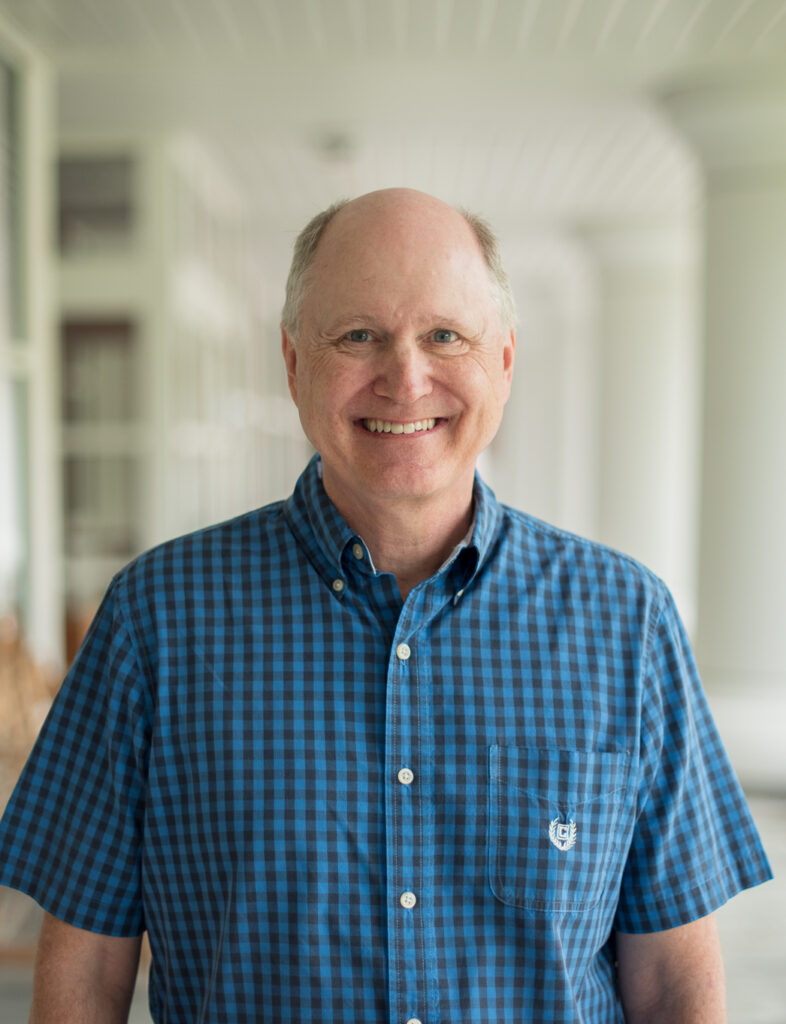
At the 105th Annual Meeting of the American Meteorological Society in New Orleans this month, David J. Stensrud, PhD, took up his post as AMS President.
Stensrud is a Professor of Meteorology at The Pennsylvania State University, author of more than 150 published papers and a book, an AMS Fellow, and an alumnus of the NOAA/National Severe Storms Laboratory. His research focuses on improving ensemble forecasts of severe weather and exploring the planetary boundary layer using dual-polarization radar observations. He has received the White House Presidential Early Career Award for Scientists and Engineers, the NOAA Distinguished Career Award, the AMS Clarence Leroy Meisinger and Charles Franklin Brooks awards. He earned his MS and PhD from Penn State. Read his bio.
We asked our new president a few questions about his influences, his history with AMS, and his plans for the 106th Annual Meeting in Houston!
What drew you to meteorology?
I was always interested in the weather, but didn’t realize that it could be a career until I took an introductory meteorology course in college. This course opened my eyes to how meteorology is, at its foundation, a combination of applied math and physics, with depth in numerical methods, statistics, chemistry, engineering, and communication also needed. This fusion of skills fit my interests quite well, and when I thought about the public service aspect that flows through the field I was sold. Deciding to pursue a career in meteorology and atmospheric science was one of the best decisions in my life.
How did your history with AMS lead you to seek this leadership position?
AMS has been an important part of my professional life, providing opportunities to grow my network, learn from the amazing people we have in the field, and publish my research in top-rated journals. I look forward to attending AMS meetings so I can catch up with colleagues, reminisce, and have discussions about science, policy, politics, and bureaucracy. When it comes to leadership roles, I believe it is important to give back, so when there was a need I was ready to raise my hand and volunteer. Taking on a new leadership role is always challenging and can at times be stressful, but you learn from others and do your best. Everyone has talents to share and I have found the AMS community to be very supportive and helpful.
What are some of the most important leadership lessons you’ve learned?
You occasionally hear about someone being a born leader. Don’t believe it. Leadership is a learned skill and with effort you can build this skill. Take courses. Read books. Try out new ideas in small ways and see what happens. Adjust what you do and try again. Listen carefully and learn from this iterative process. Encourage others to take the initiative and grow, and motivate your team from the heart. You’ll make mistakes, but that is part of being human. Forgive yourself for your shortcomings and believe that in the end you will have made a positive difference in your own unique way.
Who are some of your heroes in the field?
Not surprisingly, many of my heroes are in the severe storms community where I have done most of my work. But for this blog I want to celebrate Eugene M. Rasmusson as one of my heroes. I don’t recall exactly when I first met Gene, but very early in my career he happened to be in the audience when I was giving a conference talk. Afterwards he walked up to me, introduced himself, and then engaged me in a long conversation about my work. I had read several of his papers and couldn’t believe that he would want to spend time talking with me! I learned that we both had Scandinavian heritage and that he also had grown up in the Midwest. Perhaps our similar backgrounds were why he first approached me to say hello. Yet every time our paths crossed he would take a few minutes to ask about what I was doing, share a bit about his work, and close with some words of encouragement. Over time I saw that Gene often engaged with early career scientists, and I came to think of this outreach as one of his trademarks. Gene passed away in 2015 yet I still think of him when I attend AMS meetings. He was a remarkable scientist and a kind soul.
What can we expect from the 106th Annual Meeting?
I hope that the 106th Annual Meeting will be a time when you can recharge, learn more about yourself and how you interact with others, and enjoy time with colleagues and friends. We face many challenges during our careers and a healthy work-life balance seems to be harder to maintain than it was 40 years ago. Feeling stressed and anxious is more common. This situation translates into a desire to provide more professional and personal development opportunities across a broad range of topics, including mental health, at AMS meetings. AMS has been moving in this direction for many years and I hope to make these opportunities more easily accessible throughout the 2026 meeting. While I very much enjoy learning about science, I also enjoy and benefit from learning about how to support myself and others during our life journeys. Let’s see what we can do together.